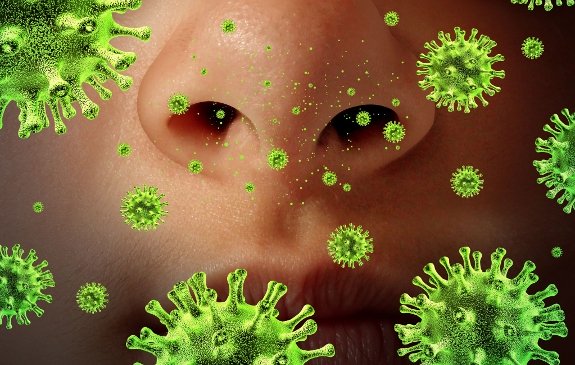Tuberculosis: World’s Biggest Pandemic Rages On

 Do you think its bird flu, or swine flu that has killed the most people worldwide? How about HPV? Guess again. The most prolific pandemic disease on the planet today is tuberculosis (TB), and there is not one thing Big Pharma has been able to do about it. This disease is second only to HIV/AIDS in the numbers of adults it kills worldwide every year.
Do you think its bird flu, or swine flu that has killed the most people worldwide? How about HPV? Guess again. The most prolific pandemic disease on the planet today is tuberculosis (TB), and there is not one thing Big Pharma has been able to do about it. This disease is second only to HIV/AIDS in the numbers of adults it kills worldwide every year.
The World Health Organization estimates that two billion people—one-third of our planet’s population—are infected with the bacteria that cause TB. Of these 2 billion, 10% are expected to become sick, with half dying if treatment is not found. TB has become resistant to multiple drugs, and medical professionals are worried it will become ‘practically untreatable.’ Countries like South Africa, Thailand, Cambodia, Swaziland, and numerous others have seen millions die. Statistics say one person dies every 20 seconds from TB.
TB was once considered an ancient disease. It is now been proven that TB affected hunter-gatherers who lived more than 70,000 years in our history. A recent BBC article stated that tuberculosis has human, not animal origins. With super bugs on the rise and traditional medicine failing how can we treat disease from a different perspective?
“Many common infections, such as streptococcus (which causes infections such as strep throat, rheumatic fever and scarlet fever) and pneumococcus (responsible for pneumonia, meningitis, blood infections, sinusitis, and ear infections), are growing resistant to the existing range of drugs. It is estimated that up to 30% of some bacteria have developed new biochemical defenses.”
The Alliance for Natural Health reports:
“According to a new study published in The Lancet, among 1,278 patients in eight different countries who were resistant to two or more first-line tuberculosis drugs, 43.7 percent showed resistance to at least one second-line drug. Interestingly, the prevalence of drug resistance correlated with how long the second-line drugs have been available in each country. The countries where the drugs had been available the longest time—twenty years—had the highest resistance rates, while the countries where the drugs had been available for ten years or less had lowest rates.”
What does this mean? Drugs become less effective as time passes, and the reliance on drugs we haphazardly cherished for so long is unsustainable. Bacteria are getting stronger and more drug resistant all the time. While we can look for answers, it is doubtful they will come from a new antibiotic drug or a new vaccine. Its time to re-assess where our medical model is taking us.
How can Natural Remedies Help?
- At least 3 studies have linked vitamin D to the successful prevention and treatment of TB. In the first study, vitamin D was able to be converted to an active form of the vitamin which ultimately helps kills the TB bacterium. In the second study, Indonesian scientists found that patients who received 10,000 IU of vitamin D led to an astounding 100% cure rate. Another study published in the Proceedings of the National Academy of Sciences showed that high doses of vitamin D, administered together with antibiotic treatment, appear to help patients with TB recover more quickly.
- TB is caused by various strains of mycobacteria, usually Mycobacterium tuberculosis. But there are many foods and supplements that are natural and powerful bacteria killers. Garlic, intravenous vitamin C, hyperbaric oxygen, the herbs Cat’s Claw and Artemisia, and colloidal silver can all be used to fight various dangerous bacteria.

No mention of Tuberculinum? This homeopathic remedy is a powerful preventer of and treatment for TB. There is a bovine strain that can be given by dropping one pill in a cattle tough daily too. Its that simple. Ask any homeopathic vet.
PS Growing up in the UK in the 1950s It was considered disgusting to spit in the street. This distaste stemmed from the TB pandemics in the early 20th century when it was realised that spitting spread the disease.Now you can see many people spitting in our parks and on our streets. Watch a soccer match on TV and count the spits and ‘nose blowings’. A campaign against spitting would be an excellent idea.